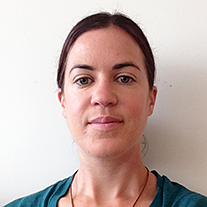Social Situation
The current experience of poverty in Ireland follows a period of economic boom between 1995 and 2008, during which there were sustained increases in income and employment. This was also a period in which Ireland experienced significant net migration, reaching a peak of over 100,000 people in 2007. The global financial crisis of 2008 had a profound impact on Irish society, which has been exacerbated by the fiscal adjustment programme. Unemployment fell from 9% in 2002 to 5% in 2007, but increased again to 14% in 2012, with 324,500 people unemployed. These trends have resulted in increased long-term unemployment (more than a year) particularly amongst younger men (25-44 years) and a NEET (Not in Education, Employment or Training) rate of 16.7% (OECD, 2014). Jobless households represented 22% of all Irish households in 2010, up from 15% in 2007. Lone parents, the unemployed, and those with an illness/disability have the lowest incomes. The proportion of those at risk of poverty (living on less than €10,889 per year or €209.40 per week in 2011) increased from 14% in 2009 to 16% of the population in 2011. Children have a relatively high exposure to poverty, with those in lone parent households and jobless households being especially vulnerable. The areas most affected by the economic downturn are within the outer reaches Dublin’s ‘commuter belt’, particularly in the Border, Midland and South-East Regions.
The Team
Previous Research
There has been considerable research in Ireland on poverty, inequality and the crisis carried out by research institutes and agencies such as the Economic and Social Research Institute (ESRI) and Social Justice Ireland (SJI). Recent publications include:
- McGinnity, F., Russell, H., Watson, D., Kingston, G., Kelly, E., (2014), Winners and Losers?: The Equality Impact of the Great Recession in Ireland, Equality Authority and Economic and Social Research Institute. Dublin, Ireland.
- Watson, D. and Matire, B. (2013). Social Transfers and Poverty in Ireland, 2004-2011. Dublin: Department of Social Protection and Economic and Social Research Institute.
- Whelan, C.T. and Maître, B (2010) Identifying Economically Vulnerable Groups as the Economic Crisis Emerged. The Economic and Social Review, Vol. 41, No. 4 (pp. 501-525).
Researchers in the NUI Maynooth Network on Politics, Power and Society have examined why popular political and civil society responses to the crisis have been relatively muted in Ireland. The UNESCO Child & Family Research Centre in NUI Galway has contributed to theoretical debates on resilience, particularly in the area of child and family support. There has been little research on resilience to poverty in Ireland. However, there is considerable evidence that Irish people rely to a significant extent on extended family networks for informal social support, including childcare. Recently, government agencies such as the National Economic and Social Council (NESC) have begun to discuss the ability of certain groups of the population to ‘bounce back’ and ‘the galvanising of local communities in the face of adversity’. However these areas have yet to examined rigorously.



